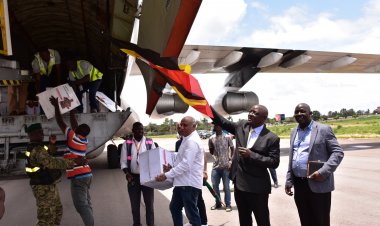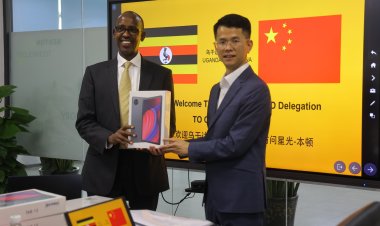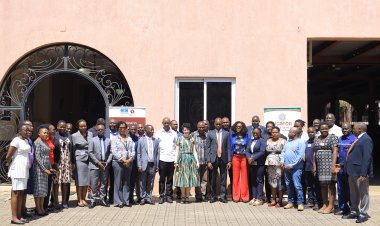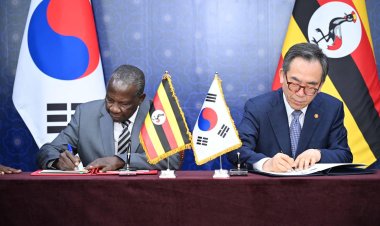Uganda’s Petroleum Authority is Overseeing Progress on EACOP Project
Story credit: GCIC
The Petroleum Authority of Uganda (PAU) has commenced a supervisory field visit to oversee the ongoing construction activities for the East African Crude Oil Pipeline (EACOP) project. This critical visit, which began on Wednesday, aims to ensure the project’s adherence to timelines and quality standards.
Mr. Hadi Watfa, the Manager of Above Ground Installation for the EACOP Project, has reported notable progress and achievements by his team. “We have significantly reduced material impact by 62,000 units and saved $12,000 through resource optimization,” he stated. Additionally, the team has managed to achieve an impressive 80% reduction in environmental impact, a testament to their commitment to sustainability. They have also built strong relationships with district authorities to facilitate road upgrades essential for the project’s logistics.
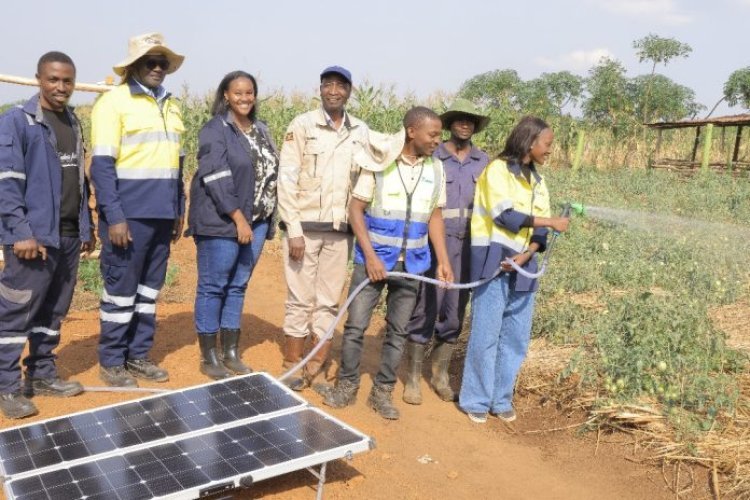
Mr. Watfa emphasised the extensive social engagement efforts undertaken to minimize community disruption. Instead of stockpiling topsoil, barren land areas were donated for beneficial use, supporting local agricultural initiatives. Despite these efforts, Mr. Watfa noted that the project is currently at 11.47% completion, trailing the target of 12.65%. To address this, new mobile batching plans are being developed to further reduce environmental and social impacts. Phase One of the project has reached 70% completion and is on track for completion by October.
On the first day of the visit, PAU Director Ernest Rubondo visited project-affected persons (PAPs) in Kasambya Subcounty, Kakumiro District. Here, the PAPs were receiving inputs from EACOP as part of the livelihood restoration project. This initiative aims to mitigate the impact on those affected by the project, providing them with necessary resources and support.
Patience Nabaasa, the Industrial Relations Coordinator, highlighted the project’s commitment to local employment. “Skilled and unskilled positions are being advertised and shared within the community, prioritizing local residents. Once selected, they are inducted and all necessary protocols are followed for their employment. The welfare of workers is given priority, with everyone earning a minimum of 300,000 UGX per month,” she said.
Merian Ahabwe, the National Content Manager, underscored the project’s dedication to national content. “We prioritize national content through subcontracting with NEC and Pearl Engineering, giving preference to locals. All food and consumables are sourced locally to support and benefit the community,” she explained.
On the following day, Director Ernest Rubondo and Mr. John B. Habumugisha, the Deputy General Manager of EACOP, spent the day in Sembabule. They visited MCPY Three and MCPY Two, as well as several project-affected persons and livelihood projects in the area.
Joseph Sekikubo, a resident and PAP in MITI, shared his success story. “With the support of the EACOP livelihood project, I am growing tomatoes. The project has provided a reliable water source, and my tomato cultivation is expanding,” he said. The training offered by the project is inclusive, allowing the entire community to learn effective farming techniques, thereby enhancing agricultural skills for all.
Another PAP, Kabugo Paul of Market Zone Sembabule Town Council, echoed similar sentiments. “The project has constructed a house for us, provided livelihood support, and supplied food. Additionally, my wife has received training in hairdressing. We are thriving thanks to the project’s assistance, and we believe it should continue for the benefit of everyone involved,” he shared.
MCPY Three, managed by Excel and contracted by CPP since September last year, is set to accommodate 487 staff members, primarily pipe liners. The site is fully paid for and features camps with superior health facilities. Contracts emphasize local content, ensuring that semi-skilled and skilled jobs are exclusively reserved for locals.
Kaginda Rogers, a local beneficiary employed at MCPY Three, highlighted the project’s employment policies. “The project employs 49 unskilled workers, with an additional 22 unskilled and 19 semi-skilled workers in the second phase. Jobs for masons, carpenters, and steel benders prioritize women,” he noted. A ballot system involving all local authorities ensures fair selection and prevents outsiders from taking local opportunities. This initiative has positively impacted families, as locals gain employment and benefit from social induction programs. Moreover, workers have learned to save for their future through NSSF contributions.
Tony Lumbuye, the Project Manager for Excel, stated that the camp site will be completed by the end of October. He emphasized that the project prioritizes employing locals, with 25 females and 65 males currently on staff.
Lwembawo John, Chairman of Kimbejja in Sembabule, shared the benefits of the project’s community development initiatives. “We have established farming gardens across three villages and received 35 pumps—8 engine-powered and the remaining solar-powered,” he said. These initiatives are aimed at improving agricultural productivity and ensuring sustainable development within the community.
The PAU’s visit highlights the ongoing commitment to ensuring that the EACOP project not only progresses on schedule but also benefits the local communities and minimizes environmental impact. The collaboration between the PAU, EACOP, and the local communities give emphasis to the project’s holistic approach to development, emphasizing sustainability, local content, and community welfare. As the project continues, these efforts are expected to yield long-term benefits for the region and its residents

 POATV Reporter
POATV Reporter 









